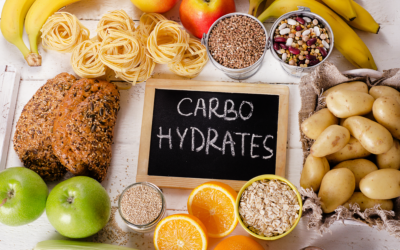Weight management can be a challenging journey for many individuals, but with the right approach, achieving a healthy and sustainable weight is possible. Among the various factors that influence weight loss success, the role of protein cannot be overstated. Protein is a critical nutrient that not only supports muscle development and repair but also plays a significant role in regulating appetite and promoting fat loss. In this article, we will explore the importance of protein for weight loss and how it can be an invaluable ally on the path to a fitter and healthier body.
Protein is Key for Satiety and Appetite Regulation
One of the most significant advantages protein can play in managing your weight is its ability to increase feelings of fullness and satiety. Unlike carbohydrates and fats, protein takes longer to digest, keeping you feeling satisfied for a more extended period after a meal. This reduced desire for constant snacking and overeating can lead to a decreased overall caloric intake, promoting weight loss.
Studies have shown that a high-protein diet can help control hunger hormones like ghrelin while increasing levels of appetite-suppressing hormones like peptide YY (PYY) and glucagon-like peptide-1 (GLP-1). This hormonal balance contributes to better appetite regulation and a reduced likelihood of succumbing to food cravings.
Preserving Lean Muscle Mass Promotes Weight Management
When pursuing weight loss, it’s crucial to ensure that you’re shedding primarily fat and not valuable muscle tissue. Consuming adequate protein during a calorie-restricted diet helps preserve lean muscle mass. Maintaining muscle is vital for a healthy metabolism, as muscles burn more calories than fat even at rest. Losing muscle mass can slow down your metabolic rate, making it harder to continue losing weight.
Protein Boosts Metabolism and Energy Expenditure
The thermic effect of food (TEF) refers to the energy expended during the digestion, absorption, and processing of nutrients. Protein has a higher thermic effect compared to carbohydrates and fats, meaning the body burns more calories during the digestion of protein-rich foods. By increasing your protein intake, you can slightly elevate your daily energy expenditure, supporting weight loss efforts in the long run.
Role of Protein For Fat Burning and Weight Management
Protein can stimulate the body to burn stored fat for energy through a process called lipolysis. When you consume protein, it triggers the release of a hormone called glucagon, which encourages the breakdown of fat cells for fuel. Consequently, the more protein you consume, the more efficient your body becomes at utilizing stored fat, aiding in weight loss.
Enhanced Feeling of Satisfaction
The feeling of being satisfied and nourished after a meal is essential for adherence to a weight loss plan. Protein-rich foods, such as lean meats, eggs, dairy products, legumes, and certain vegetables, provide a diverse range of flavors and textures, making meals more enjoyable and fulfilling. This can contribute to improved compliance with a weight loss diet, reducing the likelihood of succumbing to unhealthy temptations.
Blood Sugar Regulation
A balanced protein intake can help stabilize blood sugar levels, preventing rapid spikes and crashes in glucose. This is particularly beneficial for individuals with insulin resistance or type 2 diabetes, as stable blood sugar levels reduce the risk of overeating due to sugar cravings and promote better insulin sensitivity.
Conclusion
Incorporating adequate protein into your weight loss journey can prove to be a game-changer. From its appetite-suppressing effects and muscle-preserving properties to its ability to boost metabolism and promote fat burning, protein is a powerful tool in the pursuit of a healthier weight and lifestyle. Remember to choose a variety of protein sources to ensure you receive a wide range of essential amino acids and other nutrients. Alongside regular exercise and a balanced diet, protein can be your greatest ally in achieving and maintaining your weight loss goals for the long term.
Protein Improves Brain Health
Studies have shown that diets high in animal protein may help to prevent neurological conditions such as Alzheimer's disease and Parkinson's disease. Furthermore, there is a growing body of evidence that animal protein might be the key that unlocks the door to health...
Protein: Essential to brain health and repair
Protein, often referred to as the “building blocks of life” is arguably the most critical macronutrient for brain health and repair and disease prevention as we age. One of three macronutrients found in food the body is primarily composed of protein (second only to...
Simple versus Complex Carbohydrates
Carbohydrates are one of the three macronutrients that make up the foundation of our diet, along with protein and fat. They are found in a wide variety of foods, from fruits and vegetables to bread and pasta. Despite their importance in our diet, carbohydrates have...
Brain Health and Recovery: Food IS Medicine
Brain Health and Recovery: Food IS Medicine Food can be an excellent tool to enhance brain health and recovery. However, if you thought the brain was a complicated system to understand, the data on nutrition is far more complicated. So, spoiler, there is no “perfect...





